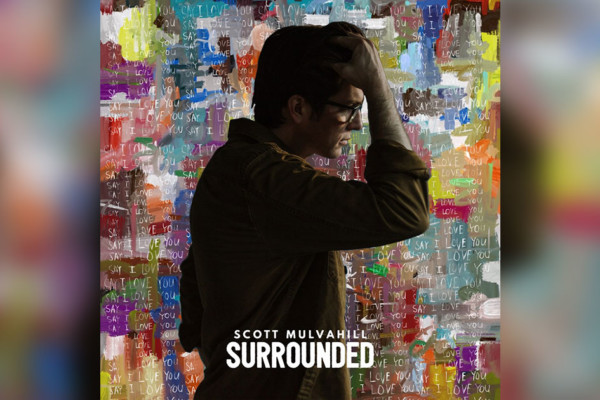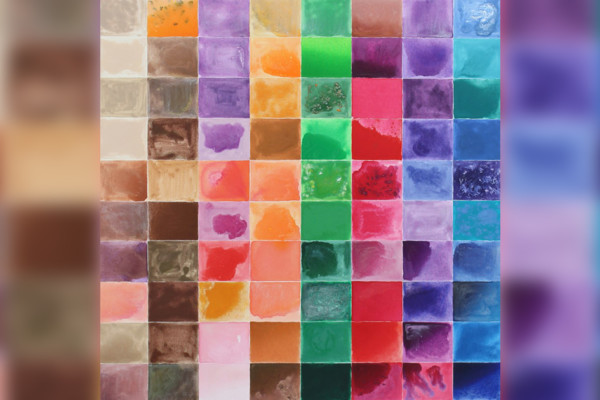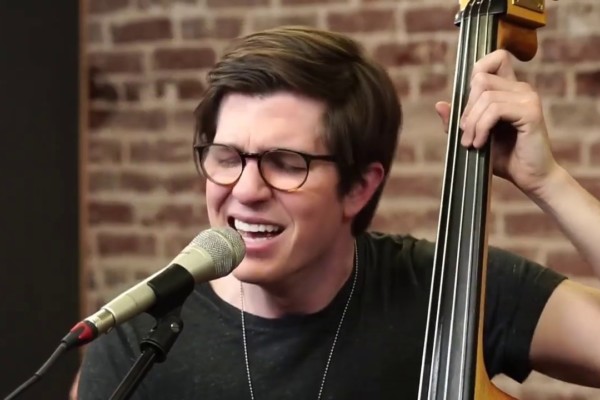Himalayas: An Interview with Scott Mulvahill
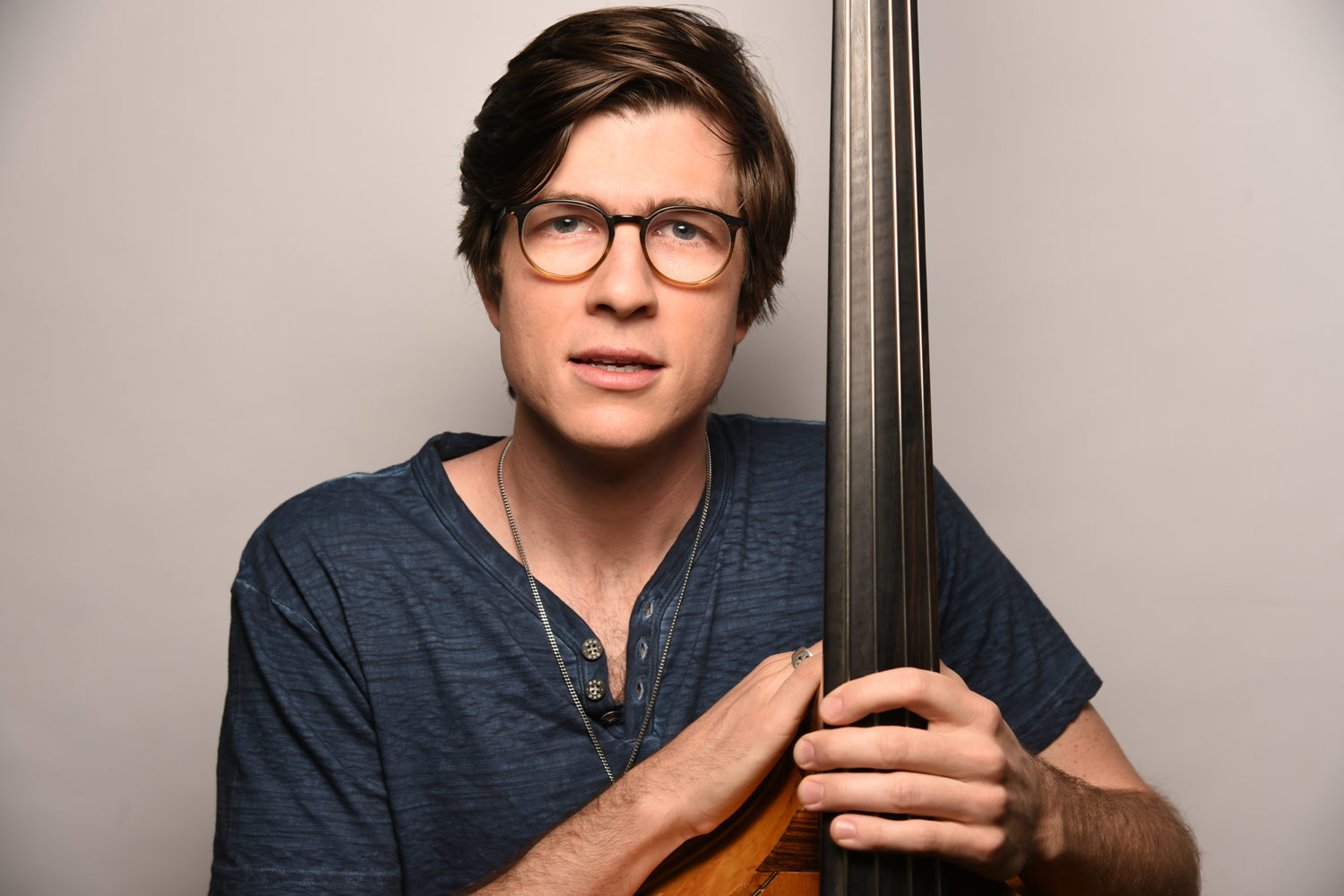
Scott Mulvahill is not your average bassist. He’s also not your average singer-songwriter. His latest album, Himalayas, is proof of that.
After spending five years on the road with bluegrass legend Ricky Skaggs, he took off to pursue his solo career. Each song is an intimate reflection of himself that engages listeners to reflect on themselves, all while creative bass lines support and drive the music.
We caught up with Mulvahill at his home in Nashville to learn about his background, lessons learned on the road, and songwriting.
What is the Nashville scene like for you? You’re connected with bassists but you’re really doing the singer-songwriter thing. Are you part of a crew down there?
I’m definitely part of a crew of friends and fellow musicians that are in the music and art space. It’s pretty eclectic, and not just bass players. Part of my experience has been in the bluegrass world, too. So I have friends from that side of stuff and then just people I know that I don’t even remember how we met. One great thing about being here is all the community. I’m pretty much the oddball wherever I go. In the bass player world, people say, “Oh, you’re the guy that writes the song and does the solo thing.” In the songwriter world it’s like, “Oh, you’re the guy that plays the upright bass.” That’s part of the fun for me. Getting to walk through all these different spheres is actually really fun.
You’ve played bluegrass and you’ve done a few other styles, so I get the impression that you listened to a lot of different music growing up. What were the first things that got you into music?
I think I’ve always been very moved by music. Early on it was just what my folks listened to: oldies and the Beatles and Ray Charles. I also got music from church and having a spiritual association with music.
Long before I even played music, I didn’t necessarily have an ear for what I was hearing to pick apart [different instrument parts]. There was a moment in my pre-teens where I started to hear music differently and recognized that there was more happening than the vocal. When I think back to that, it’s a good reminder of how most non-musicians listen to music. I think we tend to overthink it. They just hear an overall sound. In terms of taste, they may like it or hate it but don’t know why.
I started playing when I was 14 and I really got into it. I’ve always liked challenging things, and playing is challenging for your mind and for your hands. It’s a lot of levels all at once.
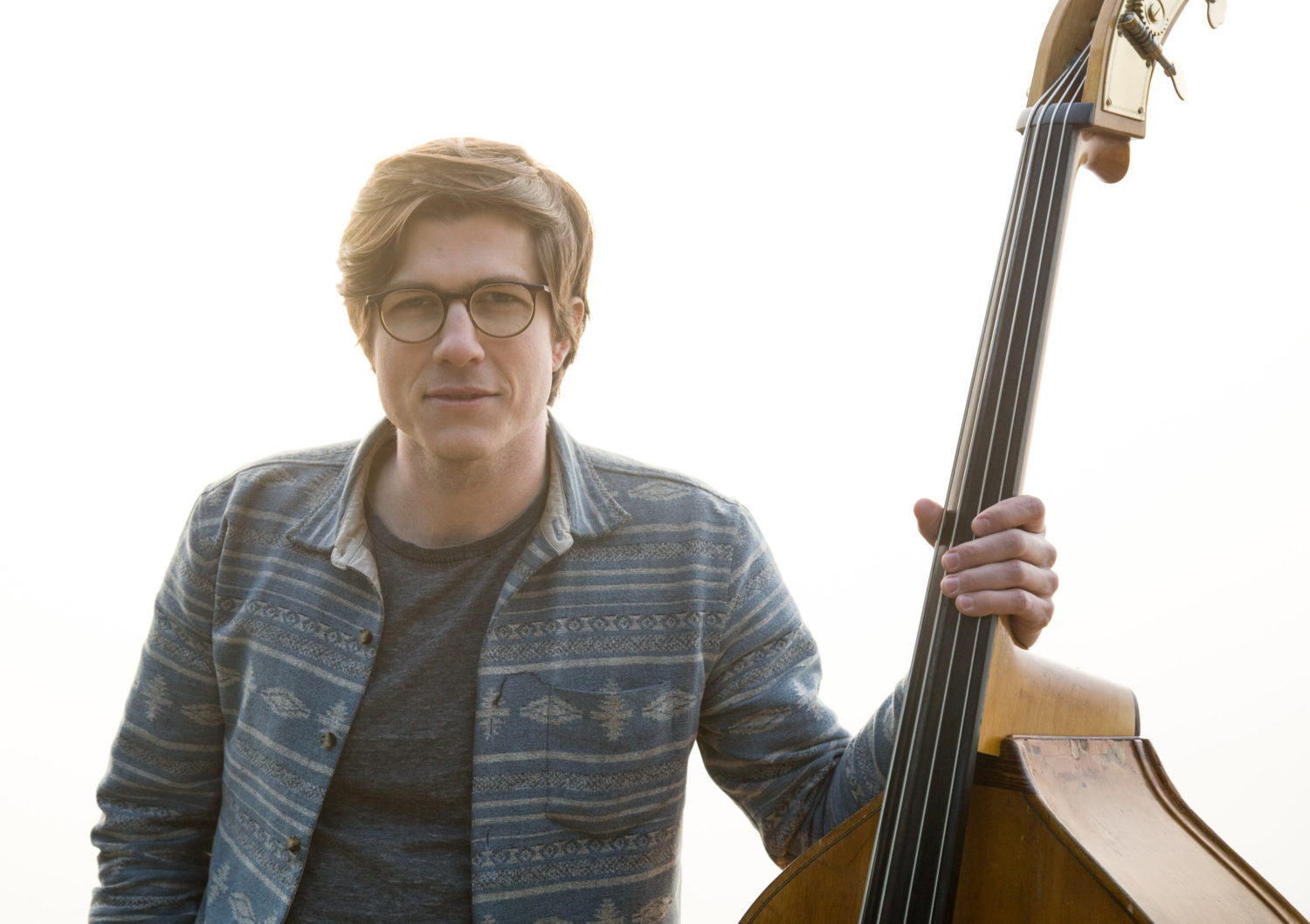
When you started playing in your early years, where did you see yourself winding up? Did you have a vision for your playing?
Not a very refined one. It wasn’t very long before I started finding I loved to play, so I wanted to figure out how to keep doing it. I didn’t have an overall plan, but I just kept taking the next step forward. I went to school to study, then once I was writing I decided that was something I had to keep doing, too. I kept those separate for a long time and didn’t put a song on the bass until I was 26. It wasn’t a meticulously sought out thing. It’s always been about diving in and adjusting accordingly. I’d say that’s still the case. I wish I could tell you I had some master plan for how it’s all going to go, but that’s not the way it works. At the moment, it’s about trying to make the best music I can make and push myself into new territory. That’s always been the case, which is how I guess I ended up where I am.
When you got the offer to play for Ricky Skaggs, had you been playing bluegrass?
That’s the hilarious thing: no. It was totally random. I didn’t even know much about bluegrass. I had moved to town a year and some change prior to getting that offer. I can remember thinking, “Man, bluegrass is a thing that uses upright bass. I play upright bass. Maybe I should learn to play bluegrass.” I borrowed some CDs from the library, but I was barely listening to anything. It’s not like I had a comprehensive collection to draw from.
I started learning some things and a few of the tunes. I made a YouTube video of myself playing guitar and bass on this Charlie Daniels song where I played the guitar solos on upright. I had made friends with Byron House, who is a great bass player here, and he sent that to Ricky. Byron was playing with Skaggs but couldn’t commit full-time so he was trying to find a replacement. He sent that to Ricky and I ended up with an audition. This was in 2012, but it feels like a lifetime ago.
What kind of lessons did you get from Ricky? What did you learn from that gig?
There are so many lessons, truly. One of the overarching things that I picked up through osmosis was this concept that artistry and being a solo artist is so much more than being a player and a musician. It’s more than being a singer. It’s more than being a writer. You step into this mantle of being the center of a cultural sphere. That’s true whether you are a superstar or an artist. You’re creating a space for people to interpret what you do and what you are. That will be part of your life in an intimate way. People are identifying with you through your music. It’s a different mindset than simply learning songs and playing them.
There’s a message and that message is inherent in what you’re doing no matter what. Everyone pretty much has a message, whether they embrace it or not. Stepping into it and saying, “This is who I am, and when you listen to what I’m doing you’ll get it,” is a lot to think about and carry at first. You get better at telling your own story over time. That vision for what you are may take a while to suss out.
Ricky really knows who he is, what he does, what his music is, and what his music isn’t. He really brings his own style to everything he does. That’s what being an identifiable and unique artist is about. It was cool to be a fly on the wall and watch.
When did that feeling grow enough to where you knew you needed to leave his band? I think a lot of bass players would be happy for the solid gig. My impression is you really took a leap to go out on your own.
I think it’s true. It’s a leap that I always knew I’d be taking eventually because I have these aspirations and the desire to go offer what I’m offering now. In a sideman situation, you really run up against the limits of what you can do on your own. After five years, I pretty well knew the limits of what I could do on my own and be in that band. It was necessary to leave if I ever wanted to give it a shot. It was a risk, and so far it’s gone well. The artist journey is difficult in a lot of ways. It’s not certain and you have to make up your job all the time, but it’s so worthwhile. I’m really loving it and it’s actually supporting me, too. For the longest time I thought, “Oh, that’s something other people get to do. That’s not for me.” I felt out of the club, but that’s not true. It was all in my head. At some point, it was clear that’s what I needed to do.
It seems like that’s what the track “Himalayas” is about. Is that song about the transition?
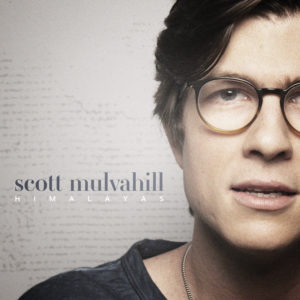 It is in the spirit of it. I had written the song prior to that, but it was about that need in me to push out and find myself in new ways. That’s the part of me that needed to leave the band to go do my thing.
It is in the spirit of it. I had written the song prior to that, but it was about that need in me to push out and find myself in new ways. That’s the part of me that needed to leave the band to go do my thing.
Was that a tough transition?
Ricky took it so well. One thing to know about him is that he’s such a loving and supportive mentor for me and everybody who’s gone through his band. That conversation was the best. I remember we were in Santa Fe, New Mexico with a day off before our show there. He really gave me a blessing. He sent me off. Rather than being protective about his band, he said, “You do what you’ve gotta do. We love you and want all the best for you.” It was more like leaving the nest than abandoning the band.
How much of Himalayas is self portrait?
All of it. There are a couple of songs I didn’t write that are on the album, which would be “20/20 Vision” and the Paul Simon song “Homeless.” “20/20 Vision” is an old bluegrass standard, but I still relate it to specific events when I’m singing it. I like to do that when I’m singing so the emotion is fresh.
All the rest of the songs I wrote or co-wrote. I think you can tell which ones are personal and which ones speak more broadly, like “The Lord is Coming.” “Gold Plated Lie” is really imagery about temptation, so that applies to me but its not necessarily a literal story. The song “Indefensible” is essentially a confession. It’s real as it can be. So is “Fighting for the Wrong Side” and “Begin Againers.” They’re kind of windows into how I think.
What is your writing process like?
It can be anything. A lot of times I’ll have one little melody idea that has some words with it. I’ll take that seed and figure out what it means, then take it from there. It usually starts with the melody, but I’ll just play around the bass, too, and find a riff I like that fits with some lyrics. That’s what happened with “Begin Againers.” I had the lyrics in my journal, then a few weeks later I started playing that riff. I laid the words over top. I think it’s pretty free. It’s not a super strict melody. It gives a relaxed feel.
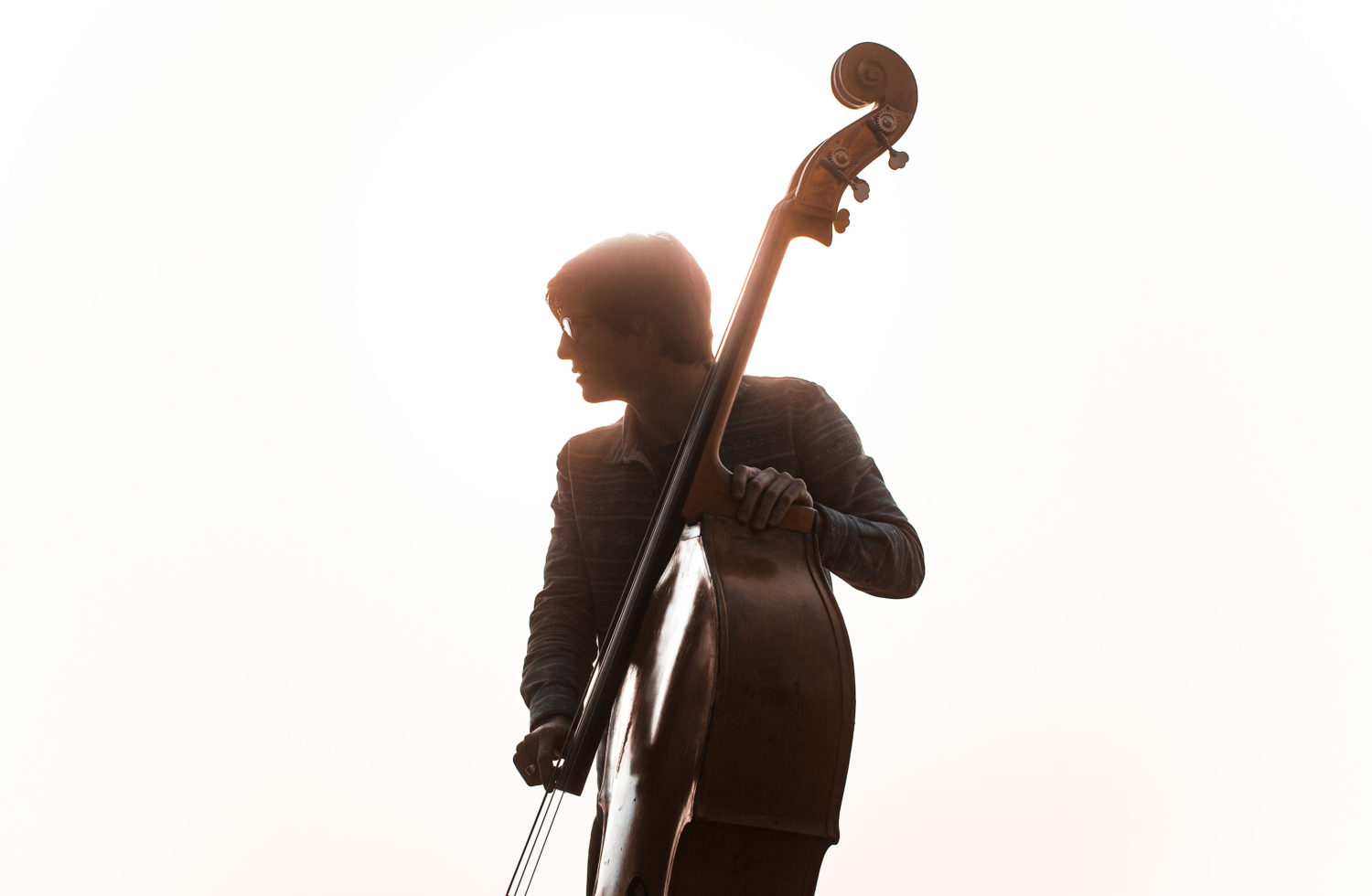
How often are you writing that you’re unable to play and sing at the same time?
It gets easier as I do it more and more, but I have to meticulously work it out. The arrangements are fairly complex, the most complex being “Himalayas” and “Indefensible.” The hard part is not playing or singing in particular, it’s the combination and the counter-rhythm of it. When I wrote “Fighting for the Wrong Side,” I knew what I wanted to do but I couldn’t do it. I had to go bar by bar, slow it down, and memorize which notes fall with the words and which fall against them. It was ridiculous. It took a lot of work. This was after I was out of college and was already playing professionally with Skaggs and people like Bruce Hornsby. I was good at my instrument. I think if I had just started in with this concept, I wouldn’t have achieved it the way I have. Even now if I haven’t played a song in a while I’ll get tongue-tied. But it wasn’t an easy or natural thing.
What do you do on your tour dates?
It depends on the show. This run is just solo, so I’ll have my bass and my guitar. Even when it’s just me, a lot of the songs are based around the solo thing. They have a little dressing, but not much, so I can give a good representation of Himalayas all by myself. A lot of shows I’ll bring a guitar player that sings harmony. I like to bring people with me that can play and spar back and forth.
I’ve done some festivals in the past few weeks with a trio setup of bass, drums, and guitar. It fits in a lot of formats. I wish I could bring my five-piece band everywhere with me, and I do occasionally. It’s more an economic thing. If you travel with a band, it’s so expensive. If the money is right you can do it. The good thing is you can get so much across with one person. It’s more about the energy I bring to it. Obviously, it can be bigger and better with more people, but I feel like fewer elements live is better than too many elements where you can lose the magic.
If I were to be on stage alone and think it’s not enough because it’s just me, that would come across. I embrace the solo shows because it should be enough to just be me. Imagine if you saw your favorite artist and it was just them and their guitar. You’d say, “Hell yeah.” It depends on the act, but singer-songwriters are spellbinding. Sting with his band or solo should be equally great. If there’s something missing from the show, it’s because of me and not other people.
Are you working on the next album?
I am. I have a bunch of songs and I set a couple of weeks set aside to dive in on a conceptual level. I think you have to get and stay in a headspace to get a record going. Hopefully next month I may get into a studio. It’ll probably be more about seeing what songs work or don’t work and get my head together about it. I do have a studio at my house, which makes it a nice home base to get my ideas together.
You’ve mentioned you kept Himalayas sparse on purpose. Are you planning to expand your palette on the next one?
Yeah, and in a pretty specific way that I’m excited about. I just got an arrangement back from a friend. It was strictly me solo but I’m singing, playing bass lines, and doing percussion at the same time. It’s a pretty involved solo thing where I’m the whole band. He arranged four parts for woodwinds on it and it’s super cool. The idea is to have some cinematic and maybe quirky woodwind parts. It takes it to a whole other texture. He sent me a mockup and it’s a really cool sound. I have a couple of directions I want to go in at the same time, so it might be different EPs or an A-side/B-side concept.

